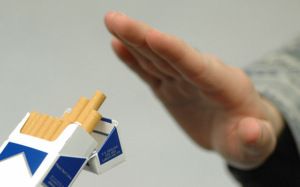News
Danish health authority wants a smoke-free country
This article is more than 9 years old.
Fighting smoking by “all means necessary” recommended in new report

The health authorities want the whole country to quit (photo: Airman 1st Class Brittany Perry)
The Danish national health authority, Sundhedsstyrelsen, is recommending a full-on offensive to get the entire country – especially younger people – to quit smoking.
An unreleased draft of a study carried out by the agency, which has been obtained by Politiken newspaper, calls for smoking to be fought by “every means necessary”.
A “breakthrough”
Leif Vestergaard Pedersen the head of the cancer society Kræftens Bekæmpelse, said that the latest recommendations were a “breakthrough” in the fight against the illnesses and deaths caused by smoking.
“This is clear recognition that tobacco is the biggest preventable health problem in Denmark,” Pedersen told Politiken.
“Tobacco is the most dangerous legal drug that people voluntarily expose themselves to.”
Sundhedsstyrelsen is recommending a national effort to completely phase out tobacco use in Denmark through initiatives including increased taxes, totally neutral packaging, more smoke-free areas, increasingly restrictive laws and a better enforcement of the current smoking laws to make it harder for young people to start smoking.
They would also like to see it be made illegal for anyone to smoke in cars in an effort to protect children.
Young smokers on notice
Many of the recommendations are aimed at children and young people, which makes sense to Professor Morten Grønbæk from the smoking prevention group Vidensråd for Forebyggelse, since the numbers show that 18 percent of 15-year-olds in Denmark are regular smokers.
“More children are now starting to smoke, and we all probably agree that this is a trend that must be reversed,” he said.
“The recommendations from the authorities may not stop a determined smoker, but the price, packaging and ease with which cigarettes can be purchased have a demonstrable effect on whether a 14-year-old chooses to buy them or not.”
READ MORE: Third of Danes support total smoking ban
Sundhedsstyrelsen’s report is scheduled to be submitted to the government soon so Parliament can begin negotiations over the anti-cancer campaign, which looks set to be launched in the coming autumn.










































